Life hacks from abroad: how Europeans save
In Russia there are many opinions about the life of Europeans. Of course, looking at TV or monitor screens, one can assume that the inhabitants of Europe are terrible spenders. After all, visiting an expensive restaurant is a common thing for them. And it’s not worth mentioning daily lunches in numerous cafes. But is this really so?
Many Russian citizens who moved to Europe for permanent residence see a completely different picture. Despite dining in restaurants and frequent travel, in everyday life Europeans are distinguished by amazing thrift and the ability to count every penny, that is, a euro cent.
The content of the article
General principles of European economy
There are both general “points” for saving money, as well as unique ones for each individual country.
So, the common ones are:
- Washing dishes. Thrifty Europeans use special powders that quickly dissolve even in cold water. This approach allows you to save on hot water supply.
- Washing in a filled sink. Everyone knows that they wash their faces here in a pre-filled sink. They also wash the dishes - they fetched water, and only then they begin the procedure.
- Discount cards. Membership cards are popular here, allowing you to get a discount of up to 20% in shops, bars, and cafes.
- Stock. Europeans love various sales and promotions in supermarkets.When they get to Sale, they try to fill the refrigerator for a week at once.
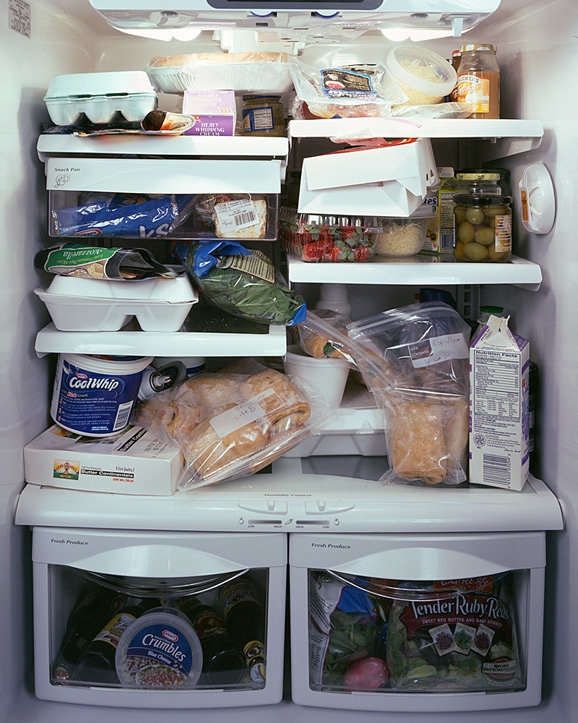
We’ve sorted out the general methods, and now let’s see how residents of different countries try to save their budget.
How to save in German
Residents of Germany are famous for their accuracy, pedantry and thrift. They taught the whole world to save a small part of their salary every month.
The main tricks that allow Germans to save:
- Grocery list. Every householder, before going to the supermarket to shop, always makes a list of everything she needs. And if in Russia we can go beyond the boundaries of the list, then the Germans never do. It’s not for nothing that the people of Germany are considered pedants.
- Cloth. It is not customary here to wear clothes from famous brands, unless they are purchased during a seasonal sale. Usually Germans wear what they bought at a second-hand store.
- Communal payments. This is the main item that allows you to save a significant portion of money. They do laundry and use the dishwasher here at night - the rates at this time of day are significantly lower than during the day. To water their lawns, German residents collect rainwater. In addition, the heating here is turned on extremely reluctantly and only in the cold season. The usual situation is when the room temperature is not higher than 20 degrees.
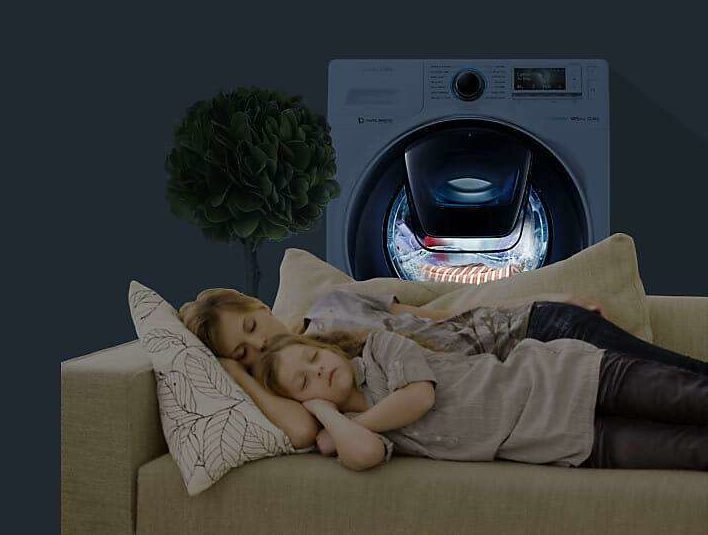
How to save money in France
The French are not inferior to the Germans in saving. Thus, residents of the country of croissants and Marseillaise save on the following:
- Cloth. The French love various sales. And so much so that they can take a day off from work to go shopping while the discount is on. At the same time, unlike practical neighbors, they can buy a bunch of unnecessary things.

- Search for travel companions. It doesn’t matter where the Frenchman is going - on vacation, work or on another trip - he will definitely look for a travel companion. This is beneficial because it allows you to split fuel costs.
- Communal payments. This is the “trick” of all European residents. So, in France they take a bath only on weekends, and on weekdays they limit themselves to a quick shower.
How to save money in Sweden
The country is famous for its high taxes. Therefore, residents try to save on literally everything:
- Buying clothes. It is not customary here to buy clothes in boutiques and overpay for a famous brand. Therefore, the choice of any Swede is second-hand. In addition, Swedes rarely update their wardrobe. After wearing them, they manage to sell clothes and shoes on specialized websites.
- Bank accounts. From childhood, Swedes get used to saving money. Parents open a savings account for each child. One of the best birthday gifts is shares or securities of a large investment fund. Upon reaching the age of 30, Swedish residents begin to create pension savings.
- Communal payments. They save on everything here: water, heating, electricity. For example, apartment buildings share a washing machine and dryer. It is not customary here to buy and install your own washing machine. The common one is installed in a special room and all residents use it if necessary. In addition, all electrical appliances are completely disconnected from the power supply at night - all plugs are pulled out of the sockets.
How to save in the UK
If you've been put to bed in a cold bed in the middle of a luxurious room, congratulations - you're in the UK. Those who think that the image of an Englishman freezing in his own bed is a thing of the past are mistaken. This is one way to save money.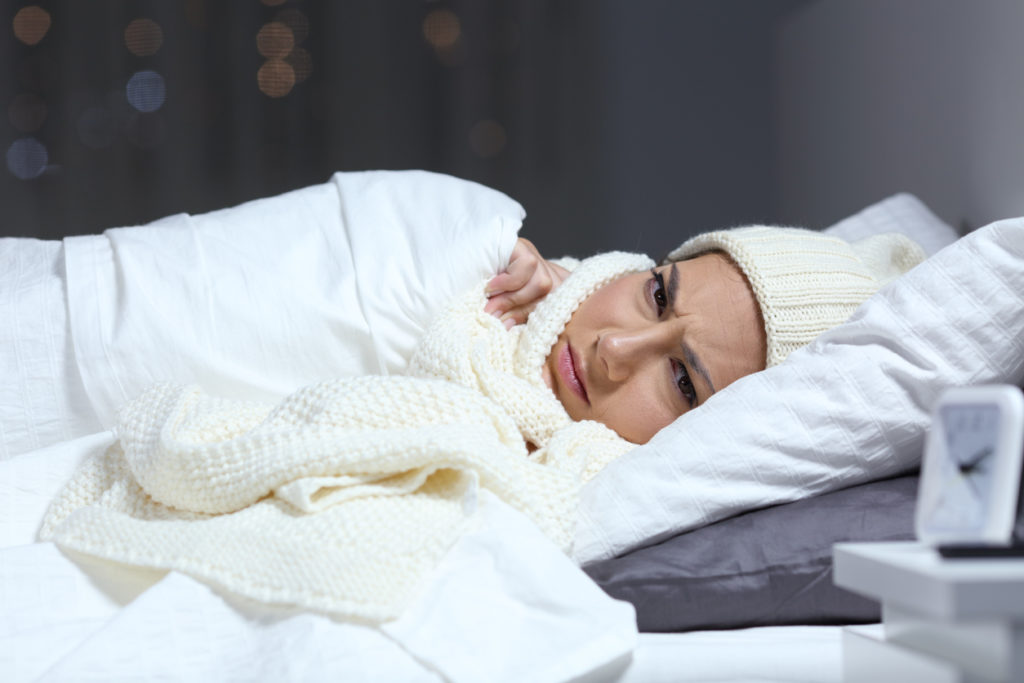
The logic here is simple and clear: why pay for heating if everyone sleeps under a warm blanket? And even in winter, the British will not heat the room, but will wear several sweaters. A resident of England will take a heating pad with hot water to bed - after all, it’s cheaper than heating the room.
Another way to save money is to skip rinsing in the shower. Here the foam is simply washed off with a towel.
The British also save on clothes, but in a rather original way - they buy expensive things, but completely ignore cheap consumer goods. Thus, there are few clothes and shoes, but, thanks to the quality, they last an indecently long time.
Reference! An interesting article of frugality is turning the wife into a housewife until the child reaches the age of 12 years. This is explained by the fact that kindergartens, after-school classes, and professional nanny services in England are very expensive. Therefore, it is more profitable for local mothers to stay at home with their children than to go to work and pay kilometer bills from childcare centers.
They are ahead of the rest in planning. People here like to plan expenses for years in advance.
Saving in Czech
The Czechs approached the issue of maintaining the budget thoroughly - they conducted an entire scientific study. It turned out that they spend most of their wages on nonsense. But if they wish, they can cut costs and save several thousand crowns monthly.
Thus, the main items of savings in Czech are:
- Communal payments. This is typical for residents of all Europe, and the Czechs are not far behind. Therefore, it is common here to meet a person with a runny nose or sinusitis - turning off the heating contributes to this.
- Caring for the local area. Want to save money? Look for a house without a lawn, otherwise you will have to spend a pretty penny on maintaining the area around the house.
- Products. Czechs respect various actions.Therefore, they purchase products during sales periods.
In Europe, it is not customary to throw money away, because even Prince George attends a regular kindergarten. Therefore, such a rational approach to spending money is worth adopting. This is especially true for the reasonable use of electricity, water, and purchasing goods on sale.
This is exactly the case in the EU.
She lived in Milan when her 3-month-old grandson was born and fully studied the saving habits of Italians. For groceries once a week, viale Papiniano is a street where the market comes twice a week.
The washing machine is filled tightly once a week because they have a lot of clothes, they don’t wear them for long, they buy them at sales, second-hand stores or at market stalls. You can buy a blanket there for 1 euro and so on.
The boiler is heated once a day for three people (60 liters), doused with water, turn off the water while soaping the body, rinse quickly and fly out of the shower. The dishes are washed in cold water in a basin, the foam is washed off either under a thin stream, or a couple of times in a basin.In the kitchen, they try to have all the appliances mechanical, probably everyone has seen geyser coffee grinders, Italians brew very strong coffee in them to dilute and squeeze the coffee dry. Coffee grounds are used as a facial scrub. They also save on food: breakfast is a cup of milk with coffee, lunch is taken with them (sandwiches or yogurt), only a full dinner, which is quite late. As a rule, this is half a glass of wine, a salad and some kind of hot dish.
Italians follow advertisements in cafes where they offer a buffet with alcohol from 18:00 to 20:00 for 5 euros, this is a time when there are few visitors and everyone who can during this period of time definitely goes to the cafe so as not to cook dinner at home , do not wash the dishes and eat plenty of delicious delicacies. In Milan, to avoid traffic jams, even-numbered private cars and motorcycles are allowed to drive on even days, and odd-numbered numbers are allowed to drive on odd days of the month. Italians cooperate and drive each other to work according to their car license plates. You won't see a local taking public transport for a couple of stops, they walk to save their ticket for a longer trip.
This is how ordinary working families live, but there are also rich people who work in the high fashion industry, where the salaries and other expenses are different accordingly.
We do not use any “instant powders” when washing dishes. What is this anyway? I wash dishes with my hands using Fairy or some other similar means; it is not clear what powders we are talking about here. We soap the dishes and rinse them in clean running water. Just like they do in Russia, but we don’t waste water.No one has washed their face in a sink with pre-filled water for a hundred years, although drain plugs are found on almost all sinks, both old and new. There are discount cards all over the world and all people use them with pleasure; this should not be attributed only to Europeans. Write nonsense, but many believe it. Greetings from Spain!
Not all Italians save on water and heating. But they don’t pour water for no reason and don’t heat it up to 30 degrees so that you can walk around the apartment in T-shirts. Thus helping the environment. There are different segments of the population. Just like ours. Use washing machines, dishwashers and other appliances as needed.
Everything described above is a sign of poverty, not economy. We also save, but not to the same extent.
And how much does treatment cost after such “savings”! Unwashed foam from the skin and dishes cause serious health problems (chemicals), second-hand clothes - allergies from sanitary treatments of these clothes (have you sniffed how these clothes smell?), a refrigerator full of expired products, etc.
In my opinion, there is only one saving - buying what you need. …. Well, maybe just a little something for the soul, because there’s so much joy, and it’s good for health.
Nonsense.
Another desire to crap on Europe.
There is no such thing there. They save water as much as possible, but not to such an extent that they can wipe off the foam from the body, and only the absolute poor dress in second-hand shops. The rest prefer discounts on brands and discounts on the same brands.
Here's how not to wash off soap suds? How many times have I seen a picture of a child being pulled out of a bubble bath and wrapped in a towel. I would be all itchy and covered in acne after this
What nonsense was written by the author of this opus... The only thing I agree with is that they don’t pour water in vain. To the author - when you decide to write something, visit these Europes at least once.
Yes, we don’t show off either. The vast majority of my friends and neighbors live within their means and do not waste money foolishly. But there is a saying: “You can do without the necessary things, but you cannot do without the excesses.” Sometimes it's okay to boo.
Oh God, the temperature in the apartment is no higher than 20 degrees..... Is this serious? How much should it be, please enlighten me...
And what is very characteristic of this nonsense: the author is anonymous))))))))))))))))))))). Well, stop throwing shit at the fan already. Tired of it.
Author, what are you doing? Where did you pick up these life hacks?
I live in Germany, and therefore I won’t tell you for the whole of Europe: all of Europe is very large...
But: (in my beloved Germany)
1. This is the first time I’ve heard about “dish powders.” Most Germans have geschirspülers, this saves water, but no one here thinks about saving water. This saves time and effort! You need to rest at home so that you can come to work tomorrow and play around, play around...
2. What is it like to wash your face in a sink with a closed drain? I can't imagine this. Fantastic.
3. There are no cards with a 20% discount here, you can trust me.There are promotions on sales of clothes in S&A with a 20% discount and many (pensioners) graze on them, but those who work do not have time for this and buy when they have to at the prices they can get.
4. “The refrigerator is full of food.” Yes, many people come by car and fill the cart to the top. 150-200 €, but you don’t have to spend time shopping during the week, you can relax (back to work tomorrow!) or spend time with your children.
5. “List of products. It is compiled so as not to buy anything unnecessary.”
Author, you... blab... I didn't have enough Russian words.
The list of products is compiled in order not to forget something important and necessary and then not to stand in the supermarket like a fool, trying to remember why I came here? Well, no one thinks about saving; they happily buy what is not on the list, in short, what the eyes see.
6. “Usually Germans wear what they bought second-hand. That's just what the Germans are like.
a. African; b. Syrian; V. Kurdish; Sovkovye; Well, and finally from the locals - the lower layer, those receiving benefits (not all), alcoholics (not all), working minimum wage (rarely), pensioners with low pensions (rarely).
7. Utility payments. They don’t save on them for one simple reason: you can’t save on them. They wait until the recalculation arrives and pay extra for the overexpenditure.
8. “They do laundry and use the dishwasher here at night”... Author, what did you eat? They do laundry and use the dishwasher here at times of day when it is convenient. No one even remembers saving on tariffs.
9. “It’s not customary here to buy and install your own washing machine.” The common one is installed in a special room and all residents use it if necessary.”The vast majority of sq. households have their own washing machine, and many have electric dryers; these ruin them with their excessive energy consumption. But it’s convenient, you don’t have to hang your underwear on the balcony on a rope...
10. “In addition, all electrical appliances are completely disconnected from the power supply at night - all plugs are pulled out of the sockets.” You have to be a complete idiot to pull plugs in sockets. As if people have nothing better to do! I turn off all electrical appliances automatically - it’s next to the plugs when I go on vacation for two weeks. For fire safety reasons.
Is that enough, or do you need more?
Oh yes... many who do not have their own car ride a bicycle. The cost of travel on public transport is really saved. And this is everywhere. Even those who have a car often ride bikes around the city - there are no problems with parking.
But for older people, as a rule, there are cheaper monthly tickets. The cost varies in different cities, everything is decided by the local government.
I believe that I will not fall into the mainstream of discussion in the sense of condemnation?)) Aren’t you still minimizing your expenses, dear Russians? No? Do you wash dishes under running water, turn on the lights in all rooms at once, turn on the washing machine or dishwasher with an incomplete load, do you not take advantage of promotions, sales, or second-hand stores? And in the supermarket you take something that your eyes will fall on? Yes, that's enough! It’s not like…. Are you a guild?)))) Earning a pretty penny and throwing it down the drain is, in my opinion, not reasonable, but the rational use of resources is worthy of being an example!
And by the way, turning off the electricity.devices from the network is also a way to save electricity, and even our open windows in winter “for ventilation”... Let's throw our hats at the foreign rednecks!!!
Well, I don’t know whether the author is overdoing it or not, but... I’ll tell you about Finland. My friend’s Finnish husband is standing outside the shower door and swearing: come out, you’ve been washing for 3 minutes already. Why wash every day, aren’t you dirty? And this is no exception to the rule , but rather a rule. for Finns. There are almost no bathtubs or jacuzzi anywhere (how much water does it take to fill?!) Utilities are expensive. We complain about expensive utilities, and I once, for fun, calculated that it costs almost a euro to flush a toilet in Finland (well, to be honest objective .. a little less) Electricity, chimney cleaning, garbage removal, television... everything costs crazy money. Therefore, you save on everything you can (at any salary level) and washing machines and dishwashers are turned on only after changing the mode to night (it’s actually cheaper), but this is after 23 hours. So... I don’t know whether this is good or bad (it also has to do with the environment: water consumption, electricity) but Europeans save much more harshly than we do. I repeat that this is probably good for the environment, but for for my psyche it was...too much.
Russian pensioners and state employees, in most cases surviving on pensions and a salary of 8-15 thousand rubles. per month, will give a hundred points in advance to any most economical resident of Europe.
Your friend has a very strange husband. Walking dirty is not an absolute rule in Finland, it’s kind of a strange sembyuya, everyone washes as much as they want, don’t you tell me :) water costs 22 euros per person per month
Electricity is not cheaper at night, there is a difference, but it is very insignificant.Electricity is approximately 20 -30 euros per month, you can choose the provider company yourself.
In old houses, utilities are 150-250 euros and then 3 rooms.
Funny article! Lots of repetitions (about communal services, but this is how everyone saves money, including the Slavs). And some things are straight out of the blue (about Germans dressing in second-hand stores). They dress simply and practically, but only refugees can wear used clothes... What nonsense
I live in Germany and I see the “pedantry” of the Germans. Apparently there are so few of them that they are unnoticeable.
There is nothing good about wastefulness and helping to enrich resource owners. European saving practices are very reasonable and correct. But this does not mean that they beg or prefer something of poor quality, unlike, for example, many Russians.
in Spain it’s warmer than it’s supposed to be in St. Petersburg. I’ll work at 58 years old, just so as not to freeze in my apartment. A cold - kidney disease or tuberculosis - it’s not difficult to get here. A friend from Barcelona came and told me that you have chemical food separately they sell it cheaper. We have everything together, so we don’t have as much chemicals as in the USA
Author, where, excuse me, have you been to Europe? In a gypsy village on the Bulgaria-Romania border?
I live in France, my own private house, we, like the locals, save on the following:
- only cold water is supplied, hot water is heated in a container in the basement of the house, it is heated constantly throughout the day, enough for a day without problems.
- I wash the dishes in the dishwasher, because... it uses cold water and heats on its own,
— the house is heated independently through a network of batteries connected to the stove in the basement; the stove turns on automatically if the temperature in the house drops below the one set on the timer.
— We water the garden with river water; my husband installed a pump on the river.
— in winter we often use fireplaces, burning with our own wood (1 hectare plot with forest)
— we grow our own vegetables, fruits, chestnuts, keep chickens, and planted myceliums.
That's all the savings are, simple and reasonable! We never save on products; we buy only organic ones. We don’t skimp on clothes; we also buy brands. I won’t even comment on this nonsense about the whole of Europe dressing second-hand. For seven years I have not seen a single second-hand store in France, but in Moscow there are more and more of them every year.
Lifehack from Germany - a tram ticket instead of toilet paper.
We have friends in France. He is French, she is Russian. No central heating. Already in November they start to freeze, really! A newborn child's room has a maximum of +18, her husband scolds her if she turns on the electric heater even a little warmer!!! “Electricity cannot be VERY expensive! For adults in the bedroom +15!!! They also save water. The mother is on maternity leave for 2 months. Then I went to work, otherwise I couldn’t survive! A child with a nanny from 2 months!
We Russians do not value what we have.
Another friend with her family in Belgium. So there, if you did not work for the state. enterprise, pension is not provided! I couldn't even believe it! But it is so! You need a pension, you go to the social service, they say, for example, you have a large apartment, we will sell it to you, buy a smaller one, we will pay the difference in money in the form of a pension!!! We've run out of money - we'll sell your car! Etc. This is complete nonsense, but it is SO!!!
And there are many more things that even we could not even dream of in a nightmare.
And we Russians are greedy, we’ve taken out all the credits and are cursing our lives. Live within your means and work! and “you will be happy”
And every second Russian does not mind losing 10 kilos!!! Look in the mirror! Yeah, now they’ll say: “What THEY FEED US with, we’ll plump ourselves from hunger!” I will answer. no, grow your own! Maybe you'll lose some weight!
I forgot to write, our friends in France both work 12 hours a day! And another nuance, in the toilet they have a small window, there is no light - it’s expensive!))
And my friend from Holland (lives there for 25 years) came to Moscow for treatment! I ask her - WHY?? She says to me: “well, you know that there is no medicine in Holland...” I said, “how?” And then I read it and realized it’s true - NO! They couldn’t even diagnose her there! I say, why didn’t you go to Germany? She says, what are you saying, it’s VERY EXPENSIVE there!
And we still criticize our medicine! Live and be happy! Well, where we do not! Needed where was born!
No, brothers, I’d rather live in our Moscow region. With our fogs over the water, mosquitoes, nightingales and rooks. And so that the caviar does not end.


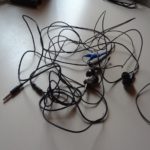


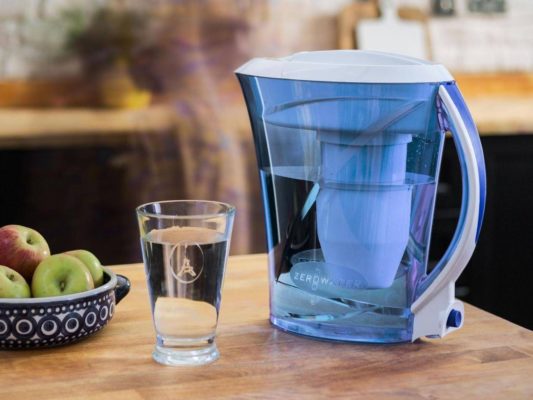
If all Europeans buy clothes second-hand, then who buys new clothes to then second-hand? Probably only Russians and Africans buy new clothes. And thrifty Europeans then wear out their cast-offs.